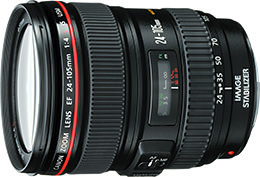Camera FAQ #22: How Do I Make Sports Photographs Look More Dynamic?
Have you ever tried to “freeze” a moment when taking a photograph of sports, but ended up with a shot that lacked impact? To inject more dynamism, using a slow shutter might just be the key. This article shows you how to take the sports photographs that you love to a whole new level. (Reported by: Shugo Takemi)

EOS-1D X/ EF24-105mm f/4L IS USM/ FL: 40mm/ Manual exposure (f/5.6, 1/15 sec)/ ISO 100/ WB: Daylight
Rotate the camera while using the slow shutter
Rotating your camera while using the slow shutter results in a radial blur effect that makes the scene seem to spin in front of you.
How to do it:
Using the centre of the lens as a point of reference, try rotating only the camera while keeping the centre of the lens still.
Points-to-note:
- Rotate the camera in the direction that is easiest for you. Regardless of whether you rotate the camera clockwise or counter clockwise, the effect is the same.
- The slower the shutter speed, the more pronounced the afterimage effect will be for the surroundings. This allows you to direct the viewer's gaze towards the focal point in the centre.
- However, ensure that the subject in the centre remains identifiable. If not, the photo may end up looking mediocre (see example below).
- The key lies in not rotating the camera slowly, but rotating it as quickly as you can.

A negative example. The camera rotated off the centre axis during the shot, causing the centre portion to become blurred as well. If the athletes are not “frozen”, it may not be clear what is captured in your shot. And if the athletes’ actions are not captured, your shots may appear mediocre.
Technique tip #1: Keep your elbows away from your body to rotate the camera smoothly
When taking normal photographs, you would keep your elbows close to your body to minimize camera shake. However, when rotating the camera for this shoot, you should keep your elbows away from your body. You’ll find that it is easier to rotate the camera if you hold it in the same way you would hold the steering wheel of a car. When rotating the camera, be careful not to touch the zoom ring and focus ring of the lens.
Find a location where you can move easily and shoot at your desired angle

When shooting at sporting events, it is normal to take shots from the stands or ringside. In cases where there is a second floor passageway, there are usually places from which banners are hung, and from where you can stand and watch. I wanted to shoot at a downward angle, so I did a handheld shoot from the second floor.
Technique tip #2: Continue to hold down the shutter button until you have finished rotating the camera
Use AI Servo AF to establish focus. Then, once you have pressed the shutter button, hold it down until you have finished rotating the camera. In order to form a beautiful circle, it is important that you not let go of the shutter button midway through rotating the camera. Everything apart from the subject is rotated around the centre axis for your shoot, so try composing your shoot such that your subject is brought into the centre of the frame.
Bonus idea: Use the zoom burst effect to create manga-like focus lines

Zooming the lens from wide-angle to telephoto at a slow shutter speed without moving the camera. This is called the zoom burst technique, and you can use it to create focus lines like those you would see in manga.
You can apply the same technique to create abstract street photographs and landscape shots. Check out this article for more details:
Slow Shutter Art: Creating Surreal, Spinning Radial Blurs
Receive the latest updates on photography news, tips and tricks by signing up with us!

EF24-105mm f/4L IS USM
Born in 1985, Takemi graduated from the Department of Photography at Nihon University’s College of Art. After completing his studies he relocated to Vancouver in Canada where he worked for a local newspaper, MINKEI NEWS VANCOUVER. After returning to Japan, he was involved in photography activities in various genres. His work included photography for magazines, posters for sports events and programmes. He was also a photographer for the application committee for the Tokyo 2020 Olympic Games and Paralympic Games. Currently, he is active as a freelance photographer.

A monthly magazine that believes that enjoyment of photography will increase the more one learns about camera functions. It delivers news on the latest cameras and features and regularly introduces various photography techniques.
Published by Impress Corporation

































